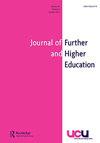伊斯兰高等教育的英语课堂幽默是否反映了伊斯兰的价值观?
IF 2.4
Q1 EDUCATION & EDUCATIONAL RESEARCH
引用次数: 0
摘要
本研究调查了印度尼西亚伊斯兰高等教育中英语课堂幽默的使用情况。本研究旨在了解印尼的英语教师教育家是否使用幽默作为教学法,以及他们是如何使用幽默的。采用叙事探究法,25名参加英语写作课程的学生以两到三人为一组,就课堂上的幽默时刻撰写描述性文本。其中9个被有意挑选出来,用幽默理论进行分析,其余的因为不幽默而被删除。研究发现,教师教育工作者在英语课堂中运用了多种形式的幽默,如幽默评论、讲师幽默的生活故事、双关语和调侃学生等。然而,其中大多数与他们所教授的课程材料无关,也不反映伊斯兰价值观。综上所述,本研究为印尼伊斯兰高等教育中幽默的使用提供了一些见解,这对于学者注意幽默的使用至关重要,比如不要伤害学生。本文章由计算机程序翻译,如有差异,请以英文原文为准。
Does humour used in EFL classrooms in Islamic higher education reflect Islamic values?
ABSTRACT This study examined the use of humour in EFL classrooms in Islamic higher education in Indonesia. It intends to find out whether Indonesian EFL teacher educators used humour as pedagogy and how they used it. Using a narrative inquiry method, it involved 25 EFL students undertaking English Writing courses working in groups of two or three members to write descriptive texts on the humorous moments in their classroom process. Nine of them were purposively selected for analysis using humour theories and removed the rest because of not humorous moments. It revealed that the teacher educators used various kinds of humour in EFL classrooms, such as humorous comments, lecturers’ humorous life stories, puns, and teasing students. However, most were unrelated to the course materials they taught and did not reflect Islamic values. In conclusion, this study has provided insights into humour used in the Indonesian Islamic higher education, which is crucial for academics to pay attention to using humour, such as not harming students.
求助全文
通过发布文献求助,成功后即可免费获取论文全文。
去求助
来源期刊

JOURNAL OF FURTHER AND HIGHER EDUCATION
EDUCATION & EDUCATIONAL RESEARCH-
CiteScore
5.20
自引率
4.30%
发文量
80
期刊介绍:
Journal of Further and Higher Education is an international, peer-reviewed journal publishing scholarly work that represents the whole field of post-16 education and training. The journal engages with a diverse range of topics within the field including management and administration, teacher education and training, curriculum, staff and institutional development, and teaching and learning strategies and processes. Through encouraging engagement with and around policy, contemporary pedagogic issues and professional concerns within different educational systems around the globe, Journal of Further and Higher Education is committed to promoting excellence by providing a forum for scholarly debate and evaluation. Articles that are accepted for publication probe and offer original insights in an accessible, succinct style, and debate and critique practice, research, theory. They offer informed perspectives on contextual and professional matters and critically examine the relationship between theory and practice across the spectrum of further and higher education.
 求助内容:
求助内容: 应助结果提醒方式:
应助结果提醒方式:


